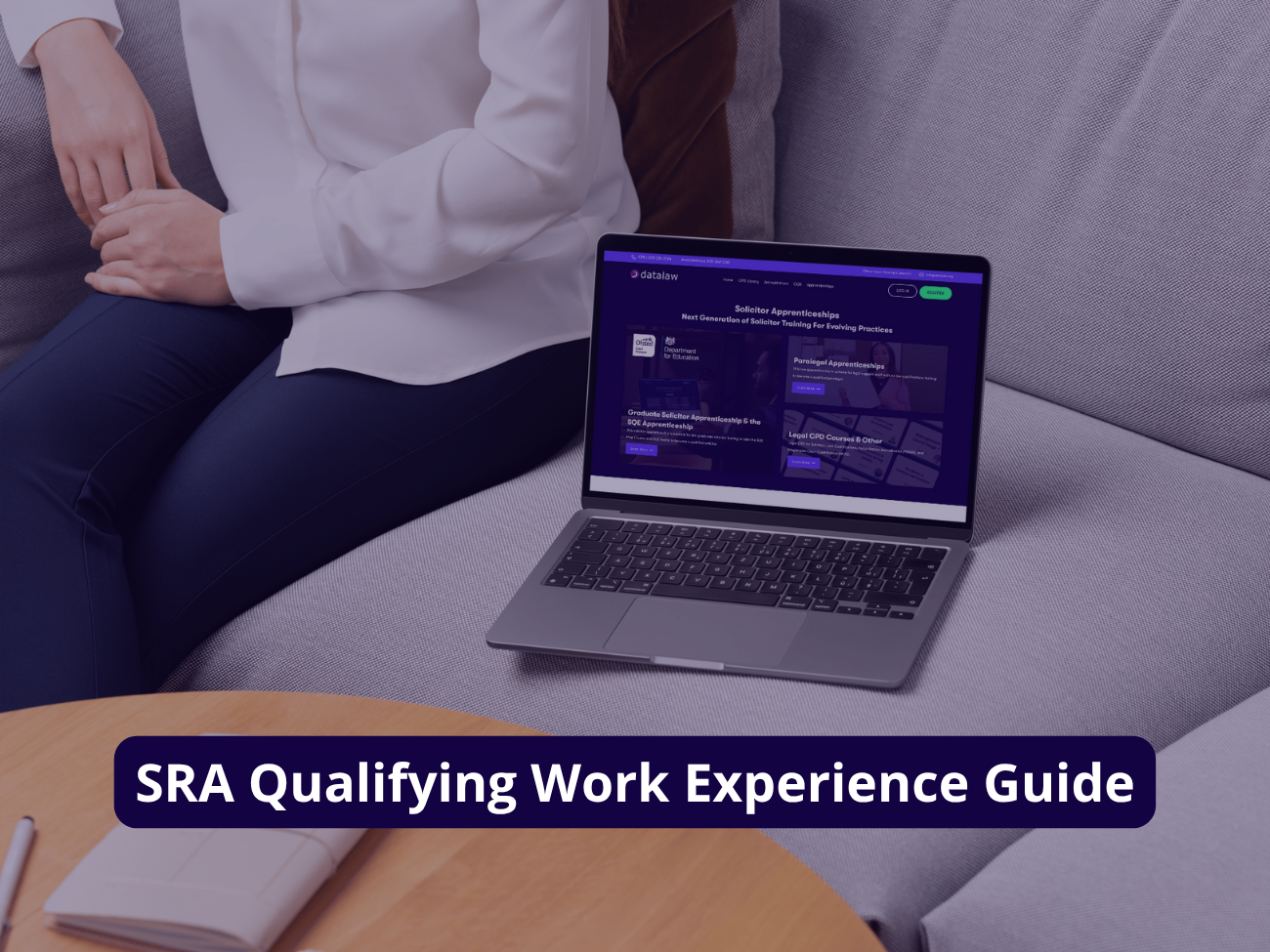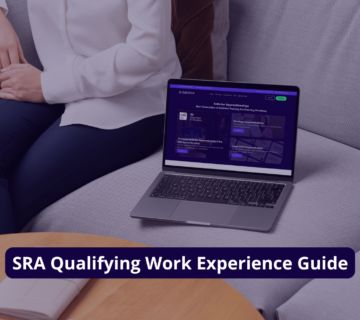The Solicitors Qualifying Examination (SQE) has ushered in a transformative era in the journey to becoming a solicitor in England and Wales. Integral to this new route is the requirement of the SRA qualifying work experience (QWE). This article provides an in-depth look at the role of Qualifying Work Experience (QWE) for the SQE, demystifying its role for those aspiring to enter the legal profession.
The Essence of Qualifying Work Experience
At the heart of the SQE pathway is the necessity of QWE, a critical step in becoming a solicitor. This experience is designed to provide practical legal exposure, essential for nurturing competent and effective legal practitioners. QWE is noted for its flexibility and a wider array of opportunities compared to traditional training contracts.
QWE & Solicitor Apprenticeships
Solicitor Apprenticeships provide an efficient pathway to becoming a qualified solicitor by combining legal education with Qualifying Work Experience (QWE). During these apprenticeships, participants engage in supervised legal work, fulfilling the QWE requirements necessary for qualification. This integrated approach ensures apprentices not only learn the theory but also gain practical skills essential for their legal career.
Scope and Duration of QWE
Prospective solicitors must undertake a minimum of two years of full-time (or equivalent part-time) QWE. This can be accumulated across up to four different legal settings, offering varied perspectives and a rich diversity of legal experiences. QWE covers a broad spectrum of legal tasks, ranging from legal consultations to client dealings.
Diverse Venues for Acquiring QWE
QWE can be pursued in a variety of environments – from law firms and in-house legal teams to legal clinics and other legal service providers. This flexible approach enables candidates to align their practical experiences with their individual interests and career aspirations.
Supervision and Authentication of QWE
For an experience to qualify as QWE, it must be supervised by either a solicitor or a legal practice compliance officer. These supervisors play a pivotal role in validating that the experiences provide ample opportunities for candidates to develop the requisite skills for solicitorship.
Documenting and Reflecting on QWE
A crucial aspect of QWE is maintaining a detailed record of the experience, coupled with reflective insights on the learned legal competencies. This process is vital for both personal growth and for showcasing one’s preparedness for the SQE assessments.
QWE’s Influence on SQE Preparation
Although QWE is not a direct component of the SQE assessments, the practical knowledge and skills honed during this period are invaluable for excelling in both the SQE1 and SQE2 examinations.
QWE: A Stepping Stone in Career Progression
QWE transcends its role as a mere qualification criterion; it’s a foundational phase for building professional networks, understanding the nitty-gritty of legal work, and making strategic career choices.
Embracing Challenges and Opportunities
Securing meaningful QWE placements can be daunting, given the need for substantive legal exposure. Nevertheless, the adaptable and diverse nature of QWE opens doors to a comprehensive and well-rounded legal understanding.
Evolving Legal Education
The introduction of QWE signifies a shift towards a more hands-on, experience-based legal education, aiming to equip new solicitors with the practical acumen needed in the modern legal world.
SRA Qualifying Work Experience as a Keystone in Legal Training
The SQE’s emphasis on QWE presents a dynamic and multifaceted approach to qualifying as a solicitor. It’s a critical phase of learning and skill development, sculpting candidates into capable legal professionals poised for successful careers. As the legal landscape continues to evolve, QWE stands as a fundamental element in cultivating the future wave of solicitors.


